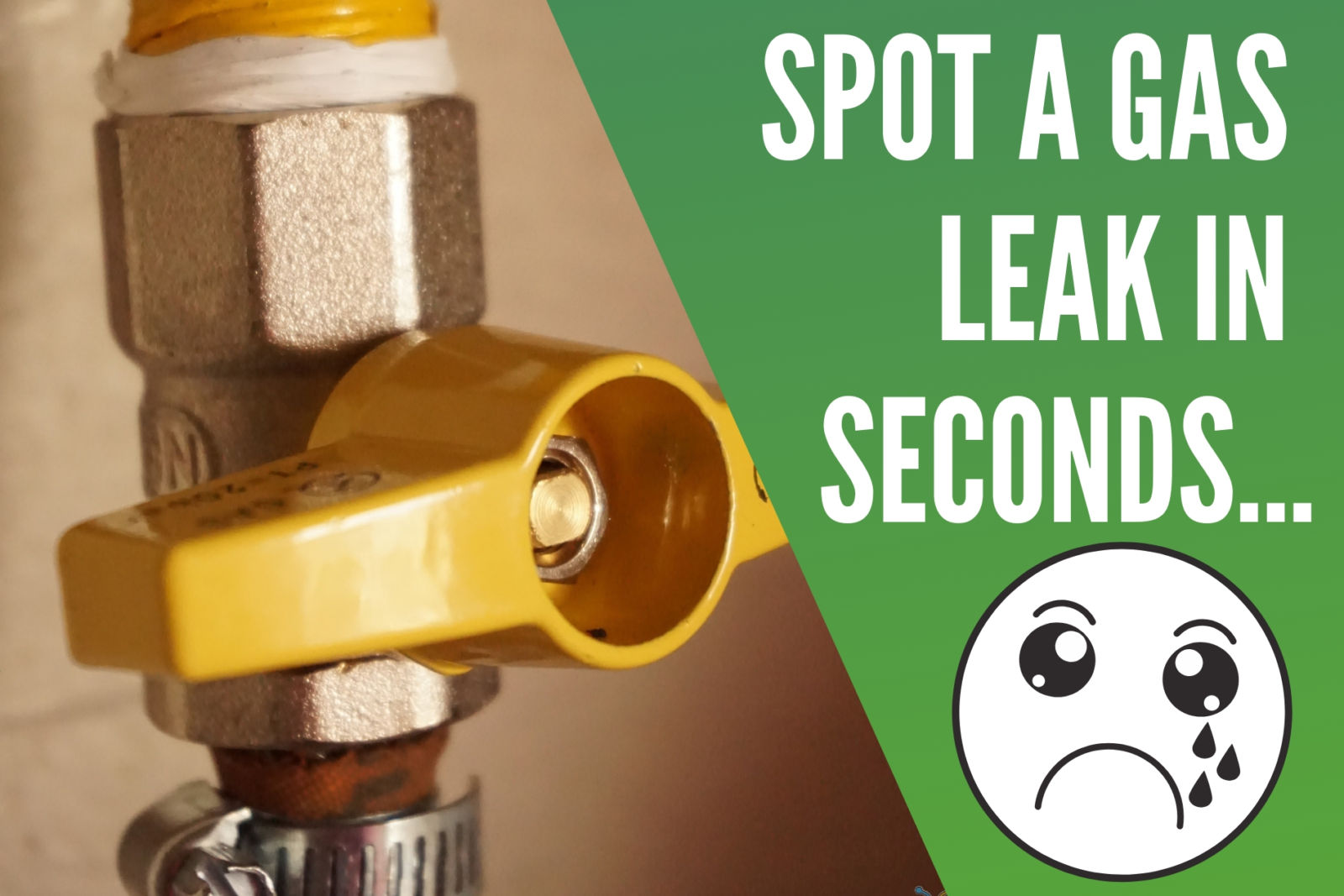We’re getting serious this week on the blog by diving into the topic of gas leaks. Although all plumbing problems are unique in their own regards, gas leaks are certainly something you don’t want to mess around with. It’s not even a question on when action should be taken. The answer will always be IMMEDIATELY. Just telling you that gas leaks are important doesn’t help you out any on determining when they’re actually present. With that said, we wanted to get a quick checklist of warning signs that potentially signify a gas leak. If you notice any of these signs, I strongly recommend getting someone out to check it out. Remember, gas leaks are different from other plumbing failures in that they can realistically cause serious and potentially fatal injuries to individuals.
? Dead Grass or Plants?
With gas lines being below the soil, it makes it tough to conduct direct observations. If you see a random spot in your yard where all the grass and plants are dead, while the rest of the yard is fine, then you’ve possibly got a gas leak on your hands. A key disclaimer on this is that it has to be a random spot that isn’t the norm for the rest of the yard. For example, in the winter, pretty much everything is going to die. That doesn’t mean you have a gas leak…
? Weird Noises?
More specifically, if you come across any sort of hissing sound, then get a qualified contractor out there right away. Typically, a hissing sound resembles a significant gas leak. We actually run into this occurring a lot around A/C units. It could signify a number of different faulty parts, but you should get someone out there nonetheless.
? Funky Smell?
If you’ve never smelt it before, a gas leak has a scent that is particularly distinct. It’s a tough one to put into words, but many suggest it reminds them of rotten eggs. With this being the case, I’m fairly confident that you’ll notice the smell of a gas leak. If you do, get on the phone with us immediately. We’ll do everything in our power to get out there. If we can’t, then call your gas company. Either way, leave the area and get someone with experience out there!
? Cloud of Mist?
This is another one that’s easily recognized. It you start to notice a foggy-type substance, chances are you’re looking at a broken gas line.
? Human (or Pet) Symptoms?
Believe it or not, you could be living in a minor gas leak and not even know it. There’s a few symptoms to watch out for. Of course, these could also be attributed to a standard cold, but it’s important to keep in mind in case you notice any of the other signs listed in this article.
? Dizziness
? Fatique
? Frequent Headaches
? Chest-pain
? Ringing Noise in Ears
? Nose bleeds
? Headaches
At the same time, it’s important to keep an eye on the behavior of your furry friends at home. It’ll actually probably affect them a little more severely, so make sure to look out for the following symptoms.
? Appetite Loss
? Red Eyes
? Vomiting
? Breathing Difficulty
? Visible Damage to a Gas Pipe?
As you hopefully noticed so far, gas leaks are fairly easy to spot when they occur (which is a good thing with their potentially dangerous side effects!). For gas pipes that are in the interior of your home, this one should be a no-brainer. If you notice any defects to it, then act immediately. Even if you think it isn’t having any negative effects at the current moment, this is a huge red flag!
➡️ What to Do?
Alright, so we’ve broken down a handful of the most common signs that signal a gas leak. Now, what should be the first action items once this assumption has been made?
- Evacuate – First and foremost, evacuate the area. That includes taking all your pets with you. Leave the doors open to your house and call 911 or the utility company’s emergency hotline from outside the house to prevent any gas ignition. I repeat, do not make this call from inside the house!
- Emergency – If anyone that was in the house is suffering from the symptoms above, make sure they receive medical attention.
- Safety Tips – If a leak is suspected, DON’T try to find the source of the leak, DON’T try repairing the leak, and NEVER switch any lights or appliances on or off!
- Future Prevention – For those that’ve witnessed a gas leak, I’m guessing you don’t want to have that same experience again! In these cases, people often ask us how they can prevent it from happening twice? Well, your best plan of attack is to schedule annual inspections by an experienced professional. This includes all gas appliances, furnaces, chimneys and gas lines. At the same time, make sure you have carbon monoxide detectors and a fire extinguisher in your house. Ultimately, the best way to combat natural gas leaks is through preparation. If you follow these rules, you’re going to minimize your odds significantly.
? Keep an Eye Out!
Gas leaks are no joke and can have serious repercussions. Luckily, they’re not impossible to spot and can reveal warning signs instantly. Depending on the situation, we can definitely provide some assistance. However, in more critical situations (as evidenced above), you might need to call in emergency services. If you notice just one or two of the signs from this list and simply want an expert opinion, feel free to give us a call at 816-348-3481. We would much rather get you helped out before it escalates any further.
Stine-Nichols Plumbing services all cities up north (Kansas City, Gladstone, Parkville, North Kansas City, Liberty), as well as throughout Johnson County and the Lee’s Summit area!


